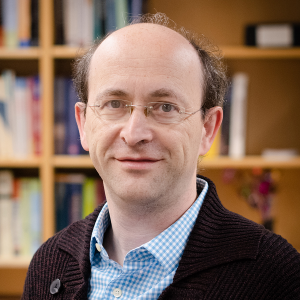
A paper by Associate Professor Yakov Nekrich, Computer Science, has been accepted for the 61st ACM-SIAM Symposium on Discrete Algorithms 2021 (SODA21), which will take place virtually January 10-13, 2021.
Nekrich is sole author of the accepted article, “New Data Structures for Orthogonal Range Reporting and Range Minima Queries.” An extended version of the paper is available for download on ArXiv.
The annual ACM-SIAM Symposium on Discrete Algorithms (SODA) is an academic conference in the fields of algorithm design and discrete mathematics. It is considered among the top conferences for research in algorithms.
Paper Abstract
In this paper we present new data structures for two extensively studied variants of the orthogonal range searching problem.
First, we describe a data structure that supports two-dimensional orthogonal range minima queries in O(n) space and O(logεn) time, where n is the number of points in the data structure and ε is an arbitrarily small positive constant. Previously known linear-space solutions for this problem require O(log1+εn) (Chazelle, 1988) or O(lognloglogn) time (Farzan et al., 2012). A modification of our data structure uses space O(nloglogn) and supports range minima queries in time O(loglogn). Both results can be extended to support three-dimensional five-sided reporting queries.
Next, we turn to the four-dimensional orthogonal range reporting problem and present a data structure that answers queries in optimal O(logn/loglogn+k) time, where k is the number of points in the answer. This is the first data structure that achieves the optimal query time for this problem. Our results are obtained by exploiting the properties of three-dimensional shallow cuttings.
The Society for Industrial and Applied Mathematics (SIAM) is an international community of 14,500+ individual members. Almost 500 academic, manufacturing, research and development, service and consulting organizations, government, and military organizations worldwide are institutional members.